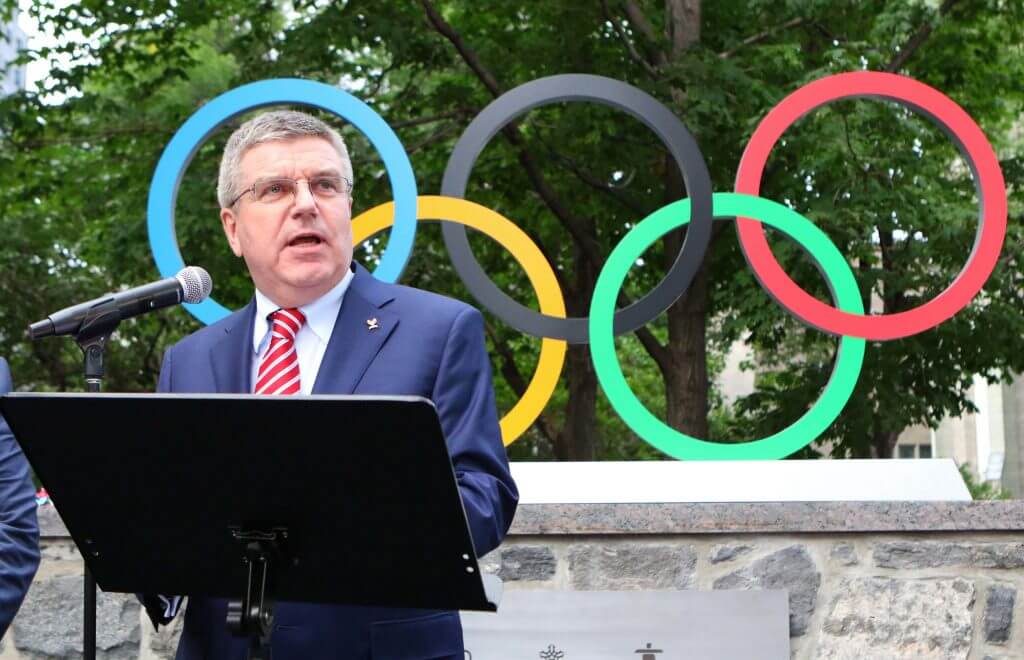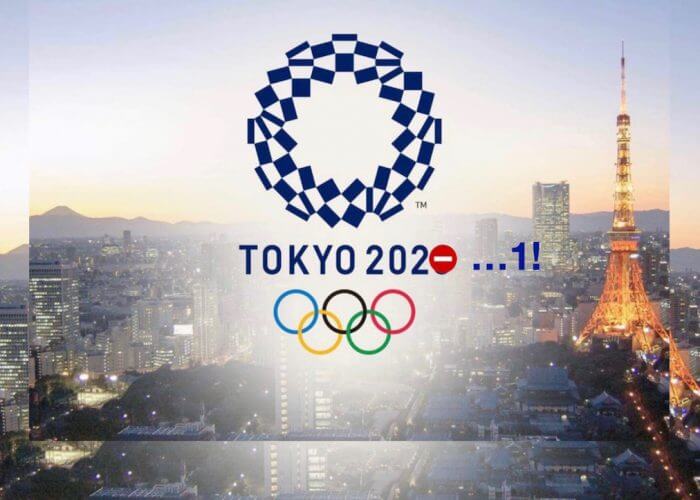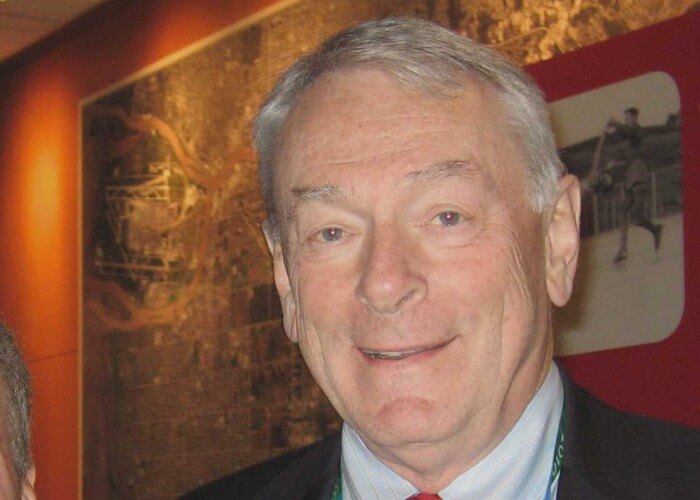IOC President Thomas Bach: No Plan B For Tokyo, Full Confidence In Olympics Going Ahead

IOC president Thomas Bach has full conviction in the Olympics taking place in Tokyo from July and insists there is no “plan B” leaving cancellation or going ahead as planned the only options.
Speculation has mounted in recent weeks that the Games are under threat following the rise in coronavirus cases and the imposition of lockdowns and a state of emergency in Tokyo.
The IOC responded to the latter by stating it had full confidence in the measures introduced by the Japanese authorities and that it was “fully concentrated and committed to the safe and successful delivery of the Olympic and Paralympic Games Tokyo 2020 this summer.”
Sir Keith Mills, the deputy chairman of the London Organising Committee for the 2012 Olympic Games, said on Tuesday he felt it was unlikely the Games would go ahead.

Tokyo 202One – Photo Courtesy: Tokyo 2020
However, Japanese prime minister Yoshihide Suga has insisted the event will be held as scheduled as “proof that humanity defeated the coronavirus.”
On Thursday – two days ahead of the six-month countdown of the scheduled opening on 23 July – Bach said he too was confident, telling Japanese news agency Kyodo News:
“We have at this moment, no reason whatsoever to believe that the Olympic Games in Tokyo will not open on the 23rd of July in the Olympic stadium in Tokyo.
“This is why there is no plan B and this is why we are fully committed to make these games safe and successful.”
According to Kyodo, Bach did hint at the possible reduction in the number of spectators, acknowledging the need for the IOC to be “flexible” and make “sacrifices” in order to protect the health and safety of all involved, saying:
“As I said, the priority is the safety. When it comes to safety, then there can be no taboo.”
The lockdown in Tokyo will last until 7 February until when entry for all non-resident foreign nationals, including athletes, is suspended in a bid to curb the spread of covid.
IOC vice-president Dick Pound said earlier this month the most realistic way of ensuring the Games would take place was to give athletes priority access to the vaccine.
The Canadian, the 1962 Commonwealth 100m freestyle champion, said on Wednesday that he believes Tokyo will happen, 12 months after it was initially scheduled.

Dick Pound, IOC member and former head of WADA – Photo Courtesy: US Mission Canada
However, Pound said it can go ahead without spectators, telling Kyodo News:
“The question is, is this a ‘must-have’ or ‘nice-to-have.’ It’s nice to have spectators. But it’s not a must-have.
“Nobody can guarantee (that the Olympics will go ahead as planned). But I think there’s a very, very, good chance that they can, and that they will.”
He stated that up to seven scenarios are being considering regarding spectators with one being that only Japanese residents would be able to attend.
“It’s certainly one option. In the end, the decision will be based on risk.
“And the bottom line, they say, is that it’s better to have the Games, even if there are no spectators, than it would be to cancel them because there are no spectators.”
It goes without saying that it’s impossible to predict what will happen.
Tokyo organisers said as late as 11 March last year they were not considering a postponement only for that very thing to come about less than a fortnight later.
While speculation is swirling the athletes continue to train for the Games although it begs the question of how trials will go ahead across the world.
Some countries have implemented a number of selection phases with Team GB confirming on Wednesday that Adam Peaty, Duncan Scott, James Wilby and Luke Greenbank had all been pre-selected based on results at the World Championships in Gwangju in 2019.
Using Britain as an example, though, a question mark must hang over their second and main phase of qualification at the British Championships in April.
Britain is still in lockdown with the governments of each home nation determining its own individual policy.
England’s lockdown laws end on 31 March although the government has said it hopes to ease restrictions during March.
Trials are scheduled for 13-18 April at the Aquatics Centre in London with hundreds of swimmers set to descend from across Britain.
Even if measures have been eased there will be a return to the tier system of local restrictions which affects travel and the mixing of households.
While there is some accommodation in the immediate vicinity of the Aquatics Centre, many will have to stay further afield which would also entail up to four journeys per day on the London Underground, to and from heats and then to and from finals.
This scenario will be replicated across many countries to some degree or other adding another layer of uncertainty regarding selection ahead of a Games that is coming under an increasing spotlight.
Advertising: Shop At Swim360



